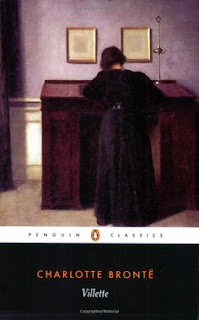November 18, 2018 has come and gone and I can't believe that my five year anniversary date with the Classics Club has come around so quickly! It seems like only a year or so ago I was compiling my list and wondering how I was going to read so many books. So how did I do with it? Well, here's what I accomplished ....
First of all, I went completely overboard and instead of choosing the recommended 50 books, I chose 170 books! Eh, not particularly my most wise decision, especially considering the content of some of them. Needless to say, I didn't finish my list but, on a brighter note I did manage to read 66 of them, which is better than 50. I also had a few of them (The Histories, Paradise Lost, Metamorphoses, Hamlet and History of the Peloponnesian War come quickly to mind) where I posted by chapter/book/act, so that was a big task in itself and expanded my reading time. I've also started Bleak House, City of God, Crime and Punishment and Dead Souls from my original list, I just didn't finish in time. :-(
So here is my first Classics Club list, which I will call complete!
My list:
Ancients (5000 B.C. - A.D. 400): (9 books read)
The Odyssey - Homer (end of the 8th century B.C.) March 23, 2014
The Histories (450 - 420 B.C.) - Herodotus (because I love my Greeks!) April 17, 2017
The History of the Pelopponesian War (431 B.C.) - Thucydides (a very
interesting war. I can't wait to get Thucydides viewpoint) June 15, 2017
Oedipus Rex (429 B.C.) - Sophocles (Sophocles is one of my favourite
Greek playwrights) May 25, 2014
Oedipus at Colonus (406 B.C.) - Sophocles June 24, 2014
Antigone (441 B.C.) - Sophocles December 28, 2014
Apology (after 399 B.C.) - Plato December 12, 2013
Defense Speeches (80 - 63 B.C.) - Marcus Tullius Cicero (I've started this
and love it!) August 20, 2014
Metamorphoses (8) - Ovid (I will finish this!) March 31, 2016
Medieval/Early Renaissance (400 - 1600 A.D.): (6 books read)
The Rule of Saint Benedict (529)? - Saint Benedict December 2, 2015
Ancients (5000 B.C. - A.D. 400): (9 books read)
interesting war. I can't wait to get Thucydides viewpoint) June 15, 2017
Greek playwrights) May 25, 2014
and love it!) August 20, 2014
Medieval/Early Renaissance (400 - 1600 A.D.): (6 books read)
Late Renaissance/Early Modern (1600 - 1850 A.D.): (17 books read)
Modern (1850 - Present): (34 books read)
Barchestershire Chronicles) April 8, 2014
series) April 23, 2014
first time I read this was in high-school, I need to do a re-read to
confirm that I despise it) January 2, 2014
Mrs. Dalloway (1925) - Virginia Woolf January 13, 2014
The Pilgrim's Regress (1933) - C.S. Lewis (I think this is a more simpler
Lewis) {No - this was incredibly complex!} November 30, 2013
Out of the Silent Planet (1938) - C.S. Lewis (love his Space Trilogy - a re-
Seven Story Mountain (1948) - Thomas Merton (looking forward to it) March 15, 2014
East of Eden (1952) - John Steinbeck (I hated Mice & Men but I will attempt
to keep an open mind with this one) February 17, 2015
To Kill A Mockingbird (1960) - Harper Lee April 5, 2016
confirm that I despise it) January 2, 2014
Lewis) {No - this was incredibly complex!} November 30, 2013

























